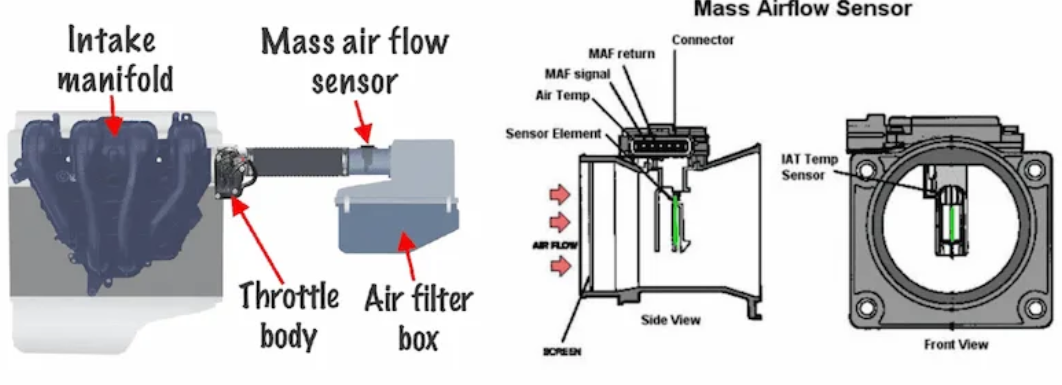
Why Mass Air Flow Sensors Matter for Your Car's Performance
Share
Why Mass Air Flow Sensors Matter for Your Car's Performance
When it comes to your car's performance, every component plays a crucial role, and mass air flow (MAF) sensors are no exception. These small but mighty devices have a significant impact on how your engine runs, affecting everything from fuel efficiency to overall driving experience.

The Critical Role in Fuel Efficiency
A properly functioning MAF sensor ensures that your engine receives precisely the right amount of fuel for optimal combustion. When this sensor becomes dirty or faulty, it can send incorrect signals to the Engine Control Unit (ECU), leading to either excessive or insufficient fuel injection. This imbalance doesn't just affect performance—it directly causes your vehicle to consume more fuel than necessary. Regular maintenance, including proper cleaning using mass air flow sensor cleaner, can help maintain peak fuel efficiency and save you money at the pump.

Direct Impact on Engine Power and Responsiveness
The air-fuel mixture directly influences your engine's power output. If the MAF sensor fails to accurately measure incoming air, the engine may not receive adequate fuel during acceleration, resulting in that frustrating sluggish feeling when you need power most—whether overtaking on the highway or merging into traffic. This is why recognizing mass air flow sensor symptoms early is crucial for maintaining your vehicle's performance capabilities.
Preventing Costly Secondary Damage
Neglecting MAF sensor issues can lead to more severe and expensive problems over time. For instance, a consistently rich fuel mixture (too much fuel) can cause spark plug fouling, reduce engine efficiency, and potentially damage the catalytic converter—repairs that can cost significantly more than timely sensor maintenance or replacement. By addressing mass air flow sensor replacement needs proactively, you protect your investment and avoid more extensive mechanical issues.

Environmental Considerations
Beyond performance and cost factors, a properly functioning MAF sensor also helps reduce your vehicle's environmental impact. When your engine runs at optimal efficiency, it produces fewer harmful emissions, contributing to cleaner air and helping your vehicle meet emission standards.
 Long-Term Value Preservation
Long-Term Value Preservation
Regular MAF sensor maintenance contributes to your vehicle's long-term reliability and resale value. A well-maintained engine with complete service records, including sensor checks and replacements, demonstrates responsible ownership and can significantly enhance your vehicle's market value when it's time to upgrade.
For more detailed information on maintenance procedures and troubleshooting tips, check out our comprehensive guide: Mass Air Flow Sensors: Function, Maintenance, and Troubleshooting